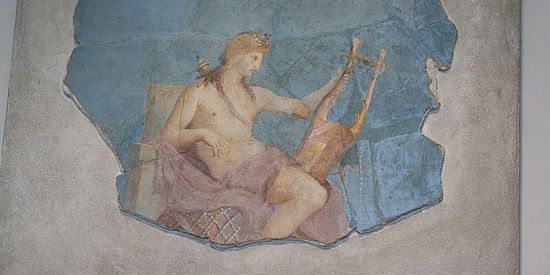
Latin Studies at the University of Basel 2002-2023
Until the departmentalization (2005), Latin Studies was part of the Seminar for Classical Philology, which celebrated its 150th anniversary in 2010. Until 2010, Latin Studies was located in the "Schönes Haus" at the Nadelberg, since 2010 it is located at Petersgraben as a department of the "Department of Classical Studies". In the years 2005-2007 the licentiate studies were gradually abolished and replaced by the Bologna study model in the Bachelor (Classical Studies with focus on Latin) and Master (Master Latin Studies). On the occasion of the reorganization of the doctorate, Latin Studies has been co-responsible for the doctoral program of Basel Classical Studies since 2010.
The decisive accents of these two decades, however, have been set in science and teaching. In addition to projects on the canonical authors, complementary research areas and teaching content on Latin Late Antiquity and Neo-Latin (Humanism on the Upper Rhine) should be emphasized. A gratifying number of dissertations and three post-doctoral theses, as well as numerous teaching projects, resulted from the Latinist foci. They range from questions on the politics of works in antiquity, from observations on natural phenomena in Neronian literature to the poetics of Claudius Claudianus, Ausonius and Sidonius Apollinaris in late Latin antiquity. In humanism, research concentrated on editions (paratexts of the Basel editions of the Church Fathers) and groundbreaking reinterpretations (Piccolomini; Joachim Vadianus). An indexing catalog ("Opera poetica Basiliensia"), central to the period of early printing, became an important pilot project in the digitization of the university library's book holdings.
In academic teaching, in addition to Caesar, Cicero, and satire, Virgil and Ovid were repeatedly represented in cross-epoch and topic-oriented lectures ("Ovid's Metamorphoses in World Literature," lecture series of Basel Literary Studies 2008). Cultural studies perspectives were integrated (migration; exile; violence), media studies positions (bimediality) were deepened ("Ekphrasis in Late Antiquity and the Middle Ages," lecture series with Art History 2013; workshop "Imago imaginis. The Ekphrastic Priniciple in Textual and Visual Media of Antiquity and the Middle Ages" 2022). Socially pressing topics were integrated, including gender debates (international research cooperation EuGeStA) and positions of Ecocriticism ("Green Poetry," lecture series of Basel Literary Studies 2020). In the teaching format "Arbeitsgemeinschaft" the edition of the complete works of the humanist Johannes Atrocianus was prepared.
Regular excursions contributed significantly to the social and professional exchange. Destinations were the famous Swiss libraries (St. Gall, Einsiedeln, Burger Library), the Bibliothèque humaniste Sélestat as well as important sites of the Roman world (Rome, Naples, Sicily, Ravenna, Trier).
Authors: MA Fabian Känzig, Dr. Anne-Sophie Meyer and Prof. Henriette Harich-Schwarzbauer (January 2023)
Judith Hindermann, The Elegiac Ass. Apuleius' Metamorphoses and Ovid's Ars amatoria. A study of intertextuality (2009).
Cédric Scheidegger Laemmle, Work Politics in Antiquity. Studies on Cicero, Horace, Virgil, and Ovid (2016).
Chiara Pfisterer Bissolotti, Claudius Claudianus: l'epitalamio per Palladio e Celerina: commento a c. min. 25th (2017).
Christian Guerra, The Narrated Pope, Enea Silvio Piccolomini - Pius II and Roman Historiography in the Commentarii de rebus a se gestis (2018).
Julia Klebs, The Rape of Proserpina - Cultural and Gender History of a Mythical Figure (2019) - (interdisciplinary dissertation, German/Latin Studies).
Katharina Meyer-Suter, Mediator of Knowledge - Critic - Author: Joachim Vadian's Commentaries on Pomponius Mela, Basel 1522 (2020).
Marianne Haubold (ed.), Erwin Rohde. Cogitata from his estate, 1867-1878 (2020).
Anne-Sophie Meyer, Natural Phenomena in Lucan's Bellum civile (2023).
Ann-Kathrin Stähle, Quid poema frangat. Zur Poetik des Bruchs in den carmina des Sidonius Apollinaris (2023).
Seraina Plotke (2012) - Neo-Latin/German Literature of the Middle Ages and Early Modern Times
Petra Schierl (2014) - Classical Philology
Judith Hindermann (2022) - Classical Philology
Quick Links

